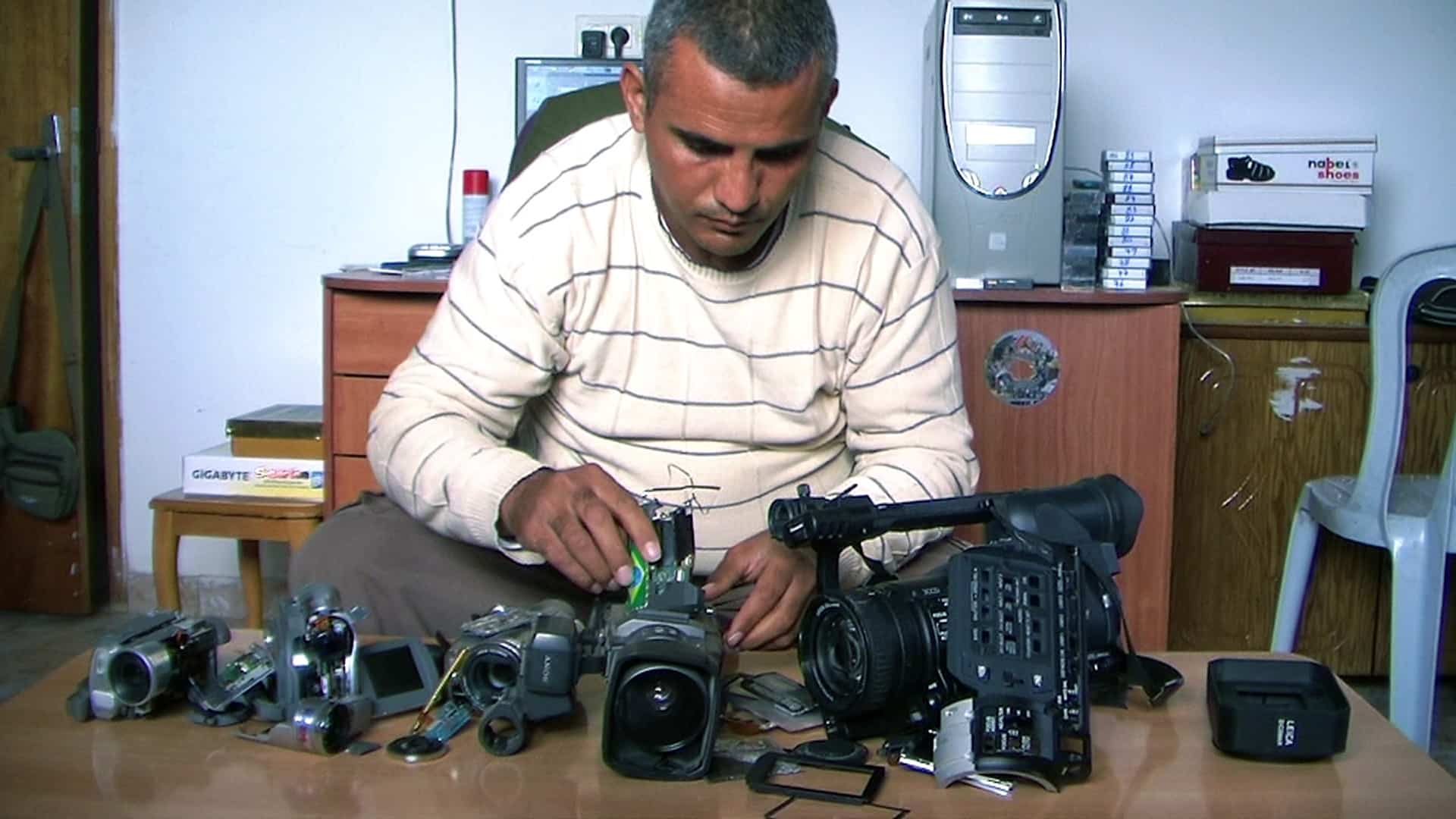In 2005, Palestinian olive farmer Emad Burnat bought a camera to document the birth of his new son, Jibreel. But what was intended as an act of celebration quickly grew into something else, as Burnat inadvertently became a documentarian of the oppression his West Bank village faced when a wall was erected through it and Palestinian farmland illegally appropriated by Israeli settlers. As we come to witness, this reluctant pivot is just another example of everyday life in Bil’in being forcibly reoriented by the occupation, as Burnat captures the daily struggles of life in the village and charts the innocence-shattering effect the occupation has on young Jibreel’s burgeoning consciousness.
Over his footage of encroaching illegal settlements, the arrests of Palestinian children in the middle of the night, the point-blank shootings of blindfolded and handcuffed peaceful protestors — plus tender snapshots of nature and joyful events in the village — Burnat delivers a poetic, reflective narration that miraculously ties these horrible and hopeful images together. It's this intimacy of perspective that makes 5 Broken Cameras profoundly harrowing and unexpectedly transcendent — a personal document of oppression that is also a testament to the miraculous persistence of the human spirit, the resilience of life and the urge to seek beauty even under truly awful circumstances.
Synopsis
Five broken cameras – and each one has a powerful tale to tell. Embedded in the bullet-ridden remains of digital technology is the story of Emad Burnat, a farmer from the Palestinian village of Bil’in, which famously chose nonviolent resistance when the Israeli army encroached upon its land to make room for Jewish colonists. Emad buys his first camera in 2005 to document the birth of his fourth son, Gibreel. Over the course of the film, he becomes the peaceful archivist of an escalating struggle as olive trees are bulldozed, lives are lost, and a wall is built to segregate burgeoning Israeli settlements.
Storyline
Olive farmer Emad Burnat documents the birth and childhood of his son amidst a backdrop of violent oppression and peaceful resistance in an occupied Palestinian village.
TLDR
A devastating but essential watch.
What stands out
The pen might be mightier than the sword, but the camera is more powerful still, and watching this documentary, you feel all of cinema’s powers — to witness, commemorate, heal, connect, and quite literally save lives — come together in full force. The revelation of the fates of the titular five cameras — smashed by soldiers, shot at, and destroyed by settlers — only reinforces the feeling that Burnat’s simple act of point-and-shoot documentation ranks among cinema’s most profoundly powerful and brave acts of filmmaking.









This blog post hit all the right notes!
Such a good movie